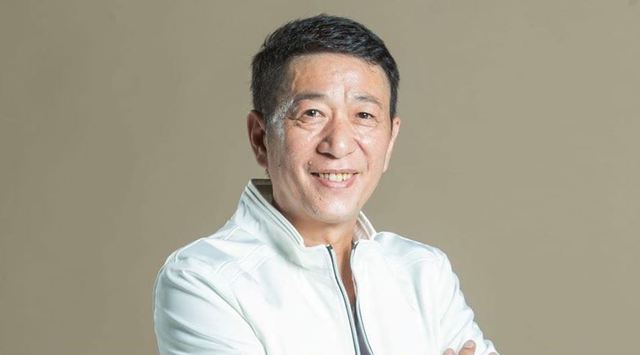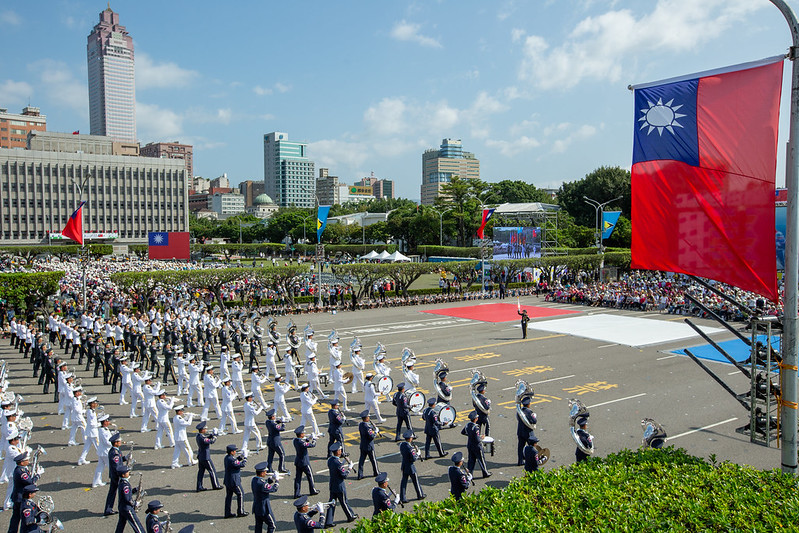Groups with a track record of violence are threatening President Tsai and her entourage with actions that could pose a major health hazard, including the use of pesticide.
The personal safety of President Tsai Ing-wen could be at risk as groups protesting her pension reform program — among them retired police and military personnel and — threaten violence and appear to have infiltrated her security detail.
Twice in recent weeks, protesters knew ahead of time the exact route that President Tsai and her entourage were to take when heading to a public event, raising the possibility of an inside job.
Many of the slogans used by the groups, meanwhile, have used derogatory terms targeting the president’s gender. Amid anger over the necessary reforms to an unfair pension system that threatens to handicap future generations, President Tsai has assumed full responsibility for the discontent, telling protesters to direct their anger at her.
And now protest organizers are threatening the safety of both President Tsai and Vice President C. J. Chen by encouraging participants to throw feces and urine at them. Even more worryingly, in a statement on Monday, the Presidential Office also indicated it had credible intelligence indicating plans by the protesters to attack President Tsai by using an aerial vehicle to spray pesticide at her and her entourage — a threat that, if acted upon, could pose a serious health hazard for large numbers of people.
The protest groups have also vowed to disrupt a state visit by Paraguayan President Horacio Cartes and his delegation on Tuesday (July 11). Paraguay is Taiwan’s sole official diplomatic ally in South America.
During protests earlier this year, a convener of the Changhua Military Civil Servants and Teachers Association said that someone “could be killed,” later admitting that he had made the emotional remarks in the heat of the moment. Also, Lin Kuo-chun, president of the New Taipei City Retired Police Association and a councilor in New Taipei City for the Chinese Nationalist Party (KMT), said in March that Tsai should “lose her head” for her efforts to reform the pension system. He later denied this was a specific reference to the president.
Comprised of retired civil servants, police and military personnel, the groups have also been influenced by the Blue Sky Alliance, a deep-blue organization with a long history of violence. Several legislators and municipal officers from the Democratic Progressive Party (DPP) were physically assaulted by protesters outside the Legislative Yuan in Taipei on April 19, resulting in a number of injuries.
The sustained harassment of the president by radical organizations, added to intelligence suggesting efforts to intimidate a visiting head of state, raises the specter of infiltration by Chinese agents bent on undermining the Tsai administration and derailing democratic processes in Taiwan.
Given the growing threat to the president’s safety, her protective detail will need to be strengthened, and the intelligence apparatus must redouble efforts to collect information about groups and individuals involved in plots which go well beyond permissible protesting and that put the elected leadership’s physical safety — as well as that of the public — at risk. Every effort should also be made to identify a possible connection to China.
Top photo courtesy of the Tsai Ing-wen official Facebook page.
You might also like
More from Taiwan Politics
President Tsai’s Second Term and Cross-Strait Relations: What to Watch Out For
The next four years will be marked by uncertainty over China’s trajectory and the state of the world in the …
Candidate Claims ‘Nobody Loves Taiwan More Than Xi Jinping’
Family business connections in the Pingtan free-trade zone and a son’s involvement with the CPPCC are raising questions about possible …
Above All, The Legitimacy of Taiwan’s Democracy
Since democratization, the main political parties in Taiwan have agreed to rules of the game which have served to legitimize …









